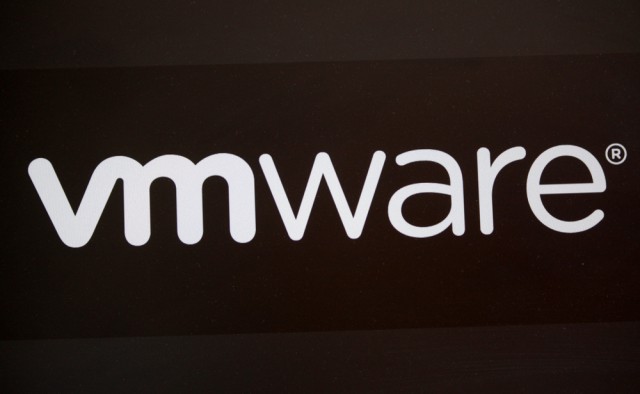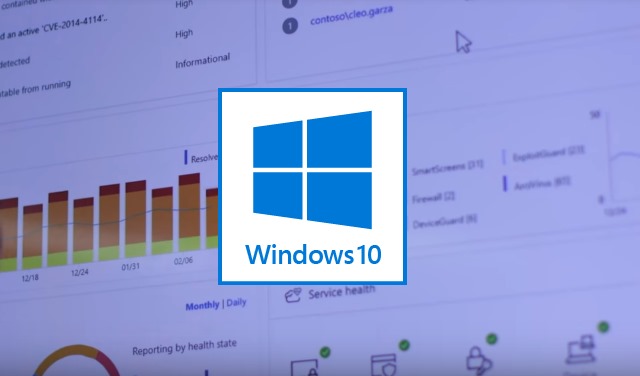
Ukraine police raid accounting software company as part of NotPetya investigation
Police in the Ukraine have seized the servers of Intellect Service, a company supplying accounting software, as part of their investigation into the NotPetya ransomware attack.
A malicious update to Intellect's MeDoc accounting package is believed to have been responsible for some of the initial NotPetya infections.

Protecting hybrid apps from attackers [Q&A]
In order to speed up development times and roll out their apps across multiple platforms without the need to create entirely new code, companies are increasingly turning to hybrid apps. The problem is that these rely on HTML and JavaScript code which is relatively easy to reverse engineer.
How can businesses prevent this and keep their apps and the data they handle safe from hackers? We spoke to Andrew Whaley VP of engineering for Europe at application protection specialist Arxan Technologies to find out.

Kaspersky Lab is ready to hand over source code to US government to disprove Kremlin links
As the US government decides whether or not to continue using Kaspersky security software, the Russian company has indicated its willingness to hand over source code for review.
Eugene Kaspersky, speaking to the Associated Press, said that "if the United States needs, we can disclose the source code." Rumors have long circulated about Kaspersky's ties to Putin, leading to speculation that the company's software could be used to spy on Americans.

OutlawCountry revelations from WikiLeaks show the CIA can target Linux
The Vault 7 leaks continue to flow thick and fast from WikiLeaks, shedding more and more light on the hacking and infiltration capabilities of the CIA. The latest batch details the OutlawCountry project which finds the CIA targeting Linux systems.
With Linux-based operating systems usually lauded for their impenetrability, news of a possible chink in the armour will undoubtedly cause concern. With OutlawCountry, it seems the CIA was able to redirect network traffic from a target machine to an agency-controlled machine for infiltration.

Few UK consumers trust councils' ability to handle their data
Slightly over half (53 percent) of local authorities in the UK are ready to take on a cyber-attack, according to a new report by PwC.
When it comes to local authority leaders, 35 percent are confident their staff are well equipped to deal with such an attack. Three quarters (76 percent) of UK CEOs are concerned about cyber threats, and almost all (97 percent) said they’re currently addressing cyber breaches that are affecting business information or critical systems.

The 'slow-burn' cost of a cyber attack
Businesses have been warned that they may be hit for damages in multiple ways after being affected by a cyber-attack.
A new report by Lloyd's of London says there are two different costs linked to a cyber-attack: a one-off cost, and a "slow-burn" effect. The one-off cost is the visible one -- notifying customers, paying ransom, paying for public relation expenses, things like that.

Enterprises gear up to face the inevitability of cyber attacks
A new study finds that while attacks increase and financial losses continue to mount, a growing number of companies are preparing to respond to breaches
The research from forensic security company Guidance Software finds that 54 percent of organizations feel well prepared to respond to a major breach in the coming year (up from 51 percent in 2016). Additionally, 25 percent of respondents say they're looking to build a formal security and incident management team within the next year up from 12 percent in 2016.

Information security and the generation gap
Cyber attacks are becoming a regular feature of everyday life and it's more important than ever to be aware of the risks and take steps to protect yourself.
But, according to a survey of 1,000 people across the US by password management company LastPass, different age groups have very different attitudes to security.

VMware will release security solution for virtual machines
VMWare is finally going to release its security solution for virtual machines, and according to the company's senior VP, it could be released in the third quarter of this year.
Speaking at a global roadshow in Melbourne, Australia, Jeff Jennings said the product (which will probably be called App Defense) will be looking at the "context of a virtual machine."

Half of organizations hit by ransomware will suffer more than one attack
With ransomware hitting the headlines at the moment thanks to the Petya/NotPetya attack, a timely new report from cloud data protection specialist Druva reveals it's becoming a ubiquitous global threat affecting enterprises large and small and devices of all types.
The survey of more than 800 companies shows that over 80 percent of respondents report ransomware attacks are on the rise and that half of businesses hit by ransomware have been attacked multiple times.

Cloud-based governance solution identifies breaches in real time
All organizations have valuable data which they need to protect, but as their digital footprint gets larger it becomes harder to keep track of and guard all their information.
Content collaboration and governance specialist Egnyte is launching a cloud-based governance solution, Egnyte Protect to provide real-time analysis of all content within an organization and deliver insights to help administrators prevent potential data breaches.

Less than one percent of UK charities are protected against email fraud
Charities, just like other organizations, rely heavily on email for their communications, but a new study reveals that in the UK most are not protected against the risks of fraudulent emails and phishing attacks.
The study by platform-as-a-service provider Red Sift analyzed the email domains of over 78,000 charities and found that under one percent have adequate protection using DMARC authentication.

Petya ransomware goes global -- what's happening and how to protect yourself
The ransomware attack we reported yesterday may have begun in the Ukraine, but it spread rapidly across Europe and has now hit companies in Australia and the US including pharmacy giant Merck.
A variant of the Petya ransomware now being dubbed 'NotPetya', it spreads initially by phishing emails and once on a system the ransomware demands $300 in bitcoin. When it's installed on one system behind a firewall it's able to spread rapidly to others on the same network.

With Windows 10 Fall Creators Update, Microsoft is going all-in on security
With Windows 10 Fall Creators Update, Microsoft is going all-in on security. When the next major update to Windows 10 is released later in the year, it will include Windows Defender Exploit Guard which sees EMET (Enhanced Mitigation Experience Toolkit) becoming a native part of the operating system.
Microsoft says that it is raising the bar for security, and this is part of the "end-to-end security features" the company has announced. Windows Defender Advanced Threat Protection (ATP) will benefit from a centralized management system as Microsoft aims to "make life harder for the bad guys."

Major ransomware attack spreads rapidly across Europe
Companies, government departments and airports in the Ukraine have been hit by ransomware this afternoon and the attack now appears to be spreading across Europe.
In Ukraine, government departments, the central bank, a state-run aircraft manufacturer, Kiev airport and the metro network have all been hit. In the UK, the advertising company WPP says its systems have also been taken down, and Danish transport company Maersk reports sites and business units shut down by the attack.